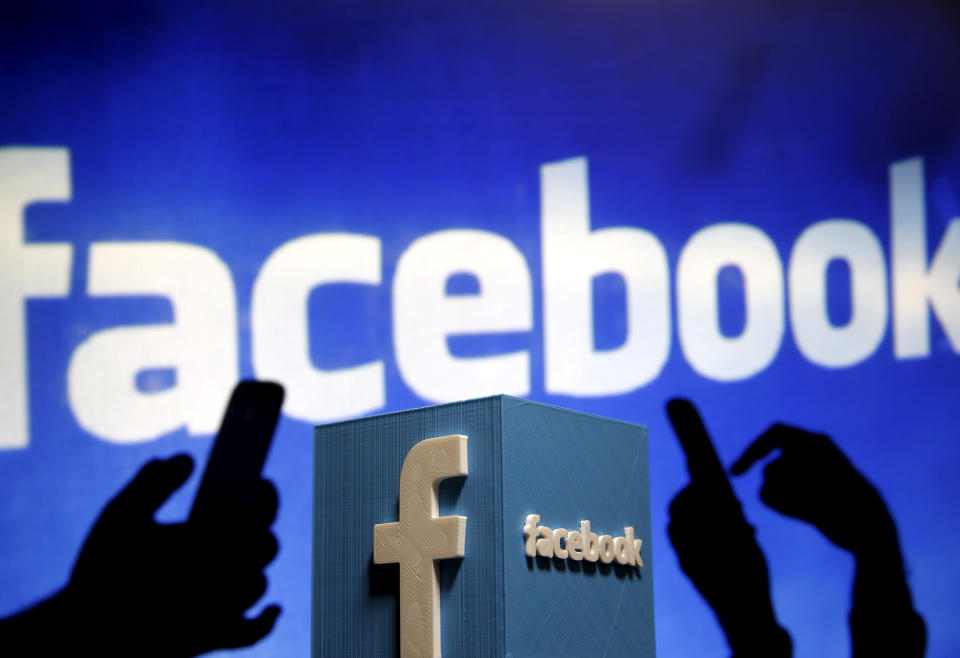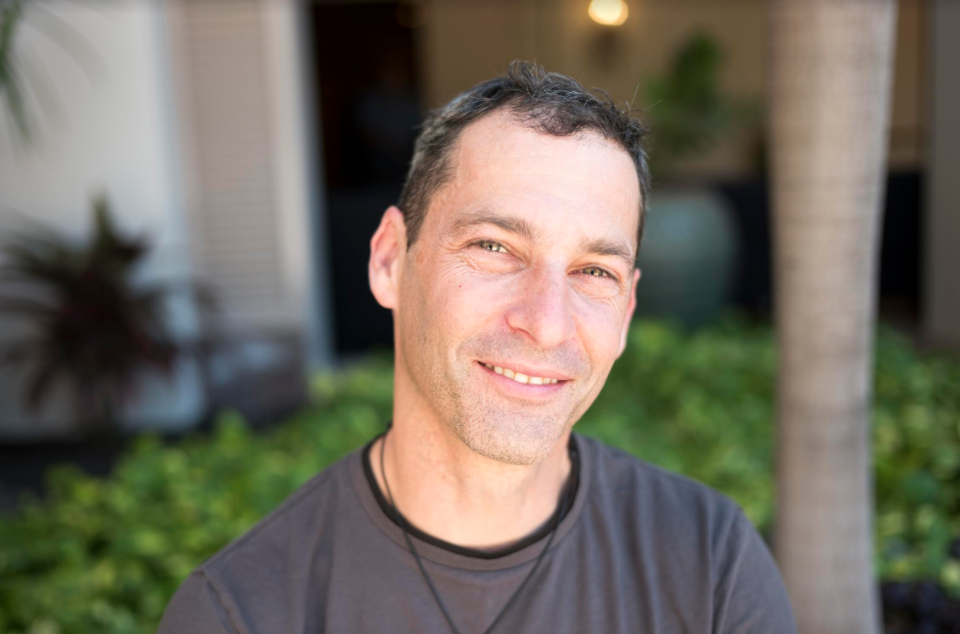Facebook publishes ad rules in wake of Russia revelations

Facebook (FB) has weathered serious blowback in the past year over revelations that Russia purchased ads on the social network to reach 126 million Americans and meddle with 2016’s U.S. presidential election. After months of being battered in the press, Facebook published a series of rules, or “principles,” on Monday to clarify goals for its advertising business moving forward.
“The main reason for sharing the principles now is what’s happened over the last 12 months and what continues to happen in the public discourse,” Facebook Vice President of Product for Ads and Pages Rob Goldman told Yahoo Finance. “I think it’s really important for people to understand where we are coming from.”
Here are the seven principles Goldman outlined in a blog post published on Monday. The wide-ranging principles cover areas, from privacy around user data to ad safety and transparency:
We build for people first. Advertising is how we provide our services for free. But ads shouldn’t be a tax on your experience. We want ads to be as relevant and useful to you as the other posts you see. This is important for businesses too, because you’re less likely to respond to ads that are irrelevant or annoying. That’s why we start with people. Our auction system, which determines which ads get shown to you, prioritizes what’s most relevant to you, rather than how much money Facebook will make from any given ad.
We don’t sell your data. We don’t sell personal information like your name, Facebook posts, email address, or phone number to anyone. And because we’ve designed our ads systems with privacy in mind, we can show you relevant and useful ads — and provide advertisers with meaningful data about the performance of their ads — without advertisers learning who you are. Whenever we launch a new ad product, we carefully consider the privacy implications.
You can control the ads you see. It’s important that you have tools to tailor the ads you see. Clicking on the upper right-hand corner of an ad lets you easily hide ads you don’t like, or block ads from an advertiser you don’t like. And when you see an ad you really don’t care about or that has nothing to do with your interests, we make sure there’s something you can do about it by visiting your ad preferences.
Advertising should be transparent. You should be able to easily understand who is showing ads to you and see what other ads that advertiser is running. It’s why we’re building an ads transparency feature that will let you visit any Facebook Page and see the ads that advertiser is running, whether or not those ads are being shown to you. This will not only make advertising on Facebook more transparent; it will also hold advertisers accountable for the quality of ads they create.
Advertising should be safe. We have community standards that prohibit hate speech, bullying, intimidation, and other kinds of harmful behavior. And we hold advertisers to even stricter advertising policies to protect you from things like scams and spam. We review many ads proactively using automated and manual tools, and reactively when people hide, block, or mark ads as offensive. When we review an ad, we look at its content, targeting, landing page and the identity of the advertiser. We may not always get it right, but our goal is to prevent and remove content that violates our policies – some of which we’ve tightened recently – without censoring public discourse.
Advertising should empower businesses big and small. We believe that smaller businesses should have access to the same tools previously available only to larger companies with sophisticated marketing teams. This is good for people: you get the best ads when there are more ads to choose from. We have millions of advertisers around the world who are investing with us each month to grow their businesses and create more jobs. Particularly for businesses, but also for other organizations, reaching the right people at the right time is make-or-break. As long as companies follow our community standards and policies that help keep people safe, our platform should empower all advertisers with all voices to reach relevant audiences or build a community.
We’re always improving our advertising. We’re always making improvements and investing in what works. As people’s behaviors change, we’ll continue listening to feedback to improve the ads people see on our service. For instance, when people shifted to mobile, we did, too. We know our work isn’t done by any means, which means we’ll often introduce, test, and update certain features like ad formats, metrics, and ad controls.
Facebook’s announcement on Monday arrives roughly one month after the social network sent prepared remarks to Congress indicating that the Internet Research Agency, a controversial Russian company widely known for publishing pro-Kremlin propaganda online under different fake identities, posted nearly 80,000 pieces of divisive content viewed by about 29 million people between January 2015 and August 2017, plus tens of millions more people who liked, shared or followed those posts. A report published in late October by The New York Times found that Russia’s efforts ultimately reached 126 million users on Facebook — the equivalent of roughly one-third of the U.S. population.
An ‘angry’ and ‘upset’ Facebook
In the wake of last year’s U.S. presidential election, Facebook struggled for months to accept responsibility for the role it played, inadvertent as it may have been — a situation it finally addressed when Facebook COO Sheryl Sandberg apologized during an interview with the publication Axios.
“We’re angry, we’re upset,” Sandberg acknowledged in the interview. “But what we really owe the American people is determination [to prevent further foreign meddling.]”
![“We’re angry, we’re upset,” Facebook COO Sheryl Sandberg said in an interview with Axios this October. “But what we really owe the American people is determination [to prevent further foreign meddling.]”](https://s.yimg.com/ny/api/res/1.2/PDVPj_cT1qCUW20BWNavfw--/YXBwaWQ9aGlnaGxhbmRlcjt3PTk2MDtoPTU2NA--/https://media.zenfs.com/en/homerun/feed_manager_auto_publish_494/fe278085677a5712151016c39b319c1a)
Facebook’s ad principles are a small step forward for the company as it ramps up efforts. Part of those efforts include clarifying some users’ ongoing confusion around Facebook ads, Goldman says.
“People are thinking about how we’re responding to things, how we’re reacting, how seriously we’re taking them,” Goldman says. “These are the principles that you can look to us to live up to.”
The principles point towards more recent efforts Facebook enacted this October to combat “improper” ads — ads that are scams or have harmful intent. Those efforts include offering users more transparency around ads and hiring another 1,000 people to review and remove Facebook ads.
Tech as the Wild Wild West
But while these efforts are a step forward, Omar Akhtar, an analyst for the San Francisco-based Altimeter Group, says that in order for Facebook to regain trust from more of its users, it must become even more aggressive. Ultimately, he contends companies like Facebook remain “misguided” in conflating advertising with free speech.
“We think of advertisers as Fortune 500 companies paying for stuff the normal way, but the truth is, any individual person can pay to have whatever message they want out of Facebook, and that’s a huge chunk of their revenue,” Akhtar explains. “When anyone can pay for advertising, anyone has access to advertising, and while it’s great that Facebook helped democratize advertising, it’s still pretty much the Wild West.”

To be sure, Facebook has learned that the hard way. While the Wild West’s (in this case, Silicon Valley’s) freewheeling culture enables rapid growth and innovation, if all of that growth and innovation is allowed to run unchecked, even the most successful of companies eventually stumble into problems. Best case scenario: users decry small nips and tucks in an app or feature.
In this case, unfortunately, it’s the worst-case scenario the world has seen play out over the last 12 months, as Facebook’s colossal reach as a platform played a major role in affecting a political outcome that will touch hundreds of millions of people. Now, many of those same people are watching — anxiously and skeptically — as Facebook navigates this current chapter of increased scrutiny and accountability.
—
JP Mangalindan is the Chief Tech Correspondent for Yahoo Finance covering the intersection of tech and business. Email story tips and musings to [email protected]. Follow him on Twitter or Facebook.
More from JP:
Intuit CEO: Old-school accountants will be ‘struggling in 5 years’ because of A.I.
How Amazon quickly trains 120,000 employees for the holidays
Why the Russia ad scandal could actually be a win for Facebook
RBC analyst: Only 2 scenarios would spur investors to flee Facebook
LEAKED AUDIO: New Uber CEO Dara Khosrowshahi reveals 3 things employees should know about him
